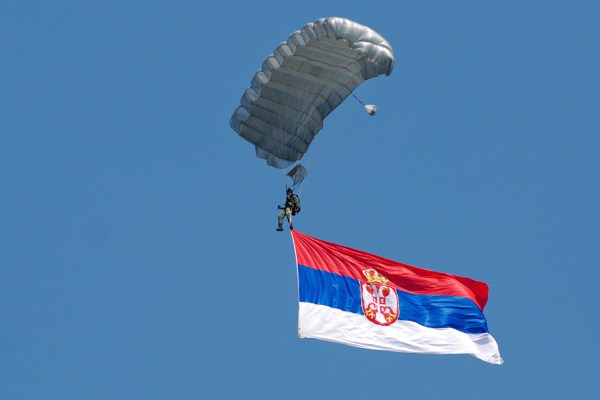Yesterday, Kosovo’s Foreign Minister Enver Hoxhaj visited Serbia, the first minister of Kosovo to do so since it declared independence from Serbia in 2008. While 110 United Nations member states, including the United States, recognize Kosovo’s independence, Serbia does not. Neither does Russia, whose president, Vladimir Putin, received a hero’s welcome with a military parade in Belgrade last week. Kosovo’s closest ally is neighboring Albania, whose prime minister was supposed to visit Serbia this week but postponed after a drone carrying an Albanian nationalist banner flew over a soccer match in Belgrade earlier this month, sparking a brawl and a national outcry.
A flurry of diplomatic controversy surrounds Serbia. Its geopolitical position between the European Union and Russia remains uncertain 15 years after a NATO bombing campaign opposed by Russia put Kosovo on the path to independence. While Prime Minister Aleksandar Vucic’s pro-EU Progressive Party decisively won March’s parliamentary elections, the rapturous reception for Putin, along with continued tensions with Albania and Kosovo, are reminders that Serbia’s priorities don’t always dovetail with Europe’s.
“It really was disappointing to see the way that Putin was welcomed in Belgrade,” says James Ker-Lindsay, a researcher on Southeast Europe at the London School of Economics and Political Science.

